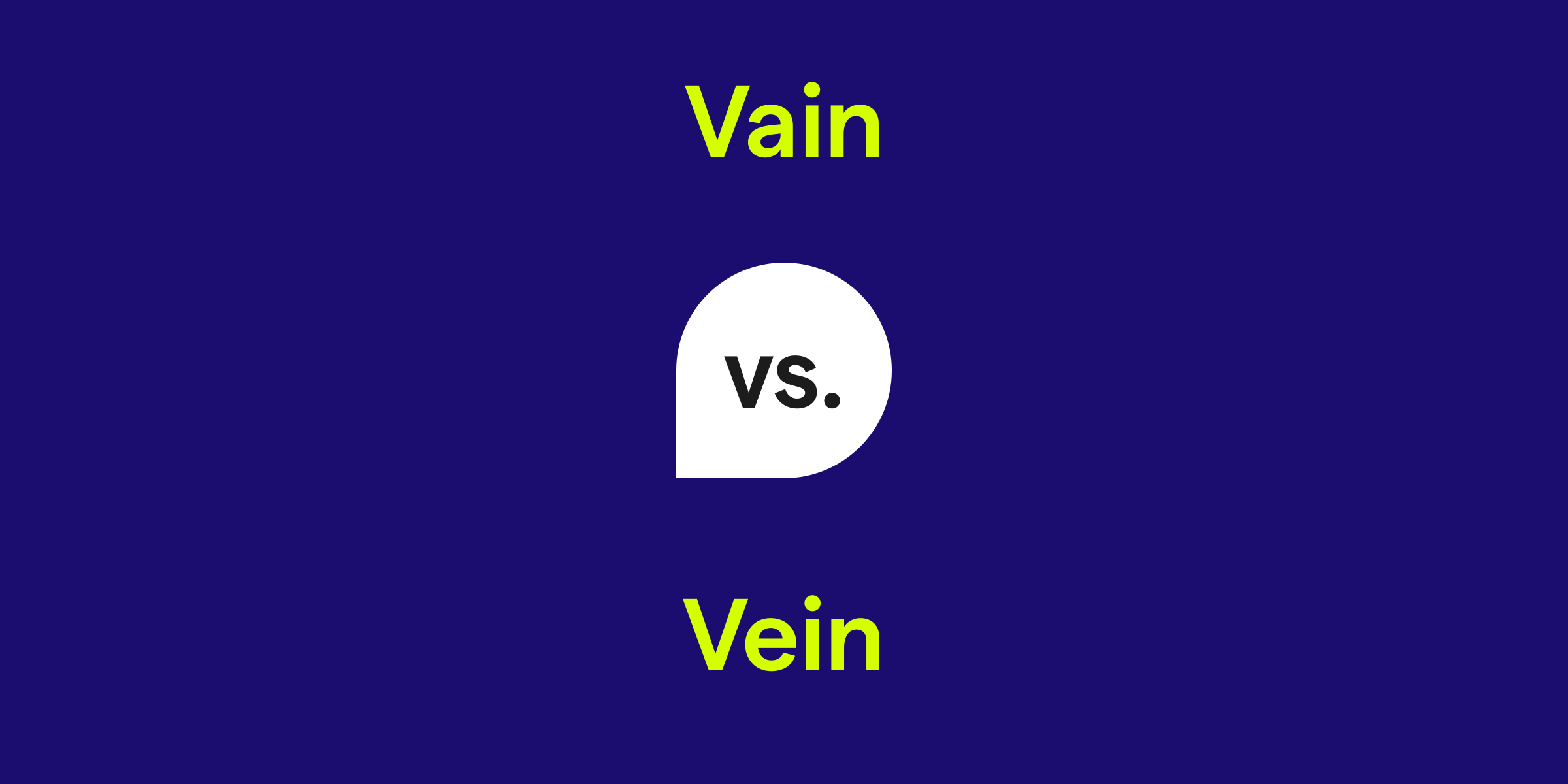Vain vs. Vein: What's the Difference?
Understanding the distinction between vain and vein is essential for clear communication. Vain is an adjective that describes an excessive pride in oneself or one's appearance, or efforts that yield no outcome. On the other hand, vein is primarily a noun referring to the blood vessels that carry blood towards the heart, or can metaphorically signify a distinctive style or manner.

How do you use the word vain in a sentence?
The word vain is used to describe someone who has an excessive belief in their own abilities or attractiveness to others. It can also refer to actions that are futile or without meaningful result. You'll often find it in contexts related to personality, personal achievements, and discussions about the effectiveness of actions.
Examples of vain in a sentence
- Despite the considerable time and money spent on the project, it turned out to be a vain effort.
- She was often criticized for being vain, always checking her reflection in every mirror she passed.
- He made a vain attempt to convince the jury, but the evidence was overwhelmingly against him.
How do you use the word vein in a sentence?
The word vein is predominantly used in the field of biology and medicine, referring to the tubes in the body that circulate blood back to the heart. Additionally, vein is used in a figurative sense to describe a particular style, mood, or feature that is characteristic of someone's work or behavior. Recognizing the context is key when determining how to correctly use vein in a sentence.
Examples of vein in a sentence
- The nurse inserted the needle into the patient's vein to draw blood.
- The marble had beautiful, natural veins running through it, enhancing its aesthetic value.
- The novelist's latest book continues in the same comedic vein as his previous works.
Vain and vein definition, parts of speech, and pronunciation
Vain definition:
Vain, as an adjective, describes having an excessively high opinion of one's appearance, abilities, or worth. It can also denote efforts that do not accomplish their intended purpose.
Vain parts of speech:
Vain pronunciation:
The word 'vain' is pronounced as /veɪn/. It rhymes with words like 'main' and 'train.'
Vein definition:
Vein refers to the tubes forming part of the blood circulation system, carrying in most cases oxygen-depleted blood towards the heart. In a non-literal sense, vein can also mean a distinctive style or character, especially of literary or artistic expression.
Vein parts of speech:
Vein pronunciation:
Vein is pronounced as /veɪn/, identical in sound to 'vain' and homophonic with 'vane.'
Vain, as an adjective, describes having an excessively high opinion of one's appearance, abilities, or worth. It can also denote efforts that do not accomplish their intended purpose.
Vain parts of speech:
- When used as an adjective, vain describes someone preoccupied with their appearance: 'She was so vain about her hair that she would never step outside without it being perfectly styled.'
Vain pronunciation:
The word 'vain' is pronounced as /veɪn/. It rhymes with words like 'main' and 'train.'
Vein definition:
Vein refers to the tubes forming part of the blood circulation system, carrying in most cases oxygen-depleted blood towards the heart. In a non-literal sense, vein can also mean a distinctive style or character, especially of literary or artistic expression.
Vein parts of speech:
- As a noun, vein refers to a blood vessel: 'The phlebotomist located a suitable vein for the intravenous line.'
- In a figurative sense, vein as a noun can describe a distinct mood or style: 'His writing follows the vein of classic detective fiction.'
Vein pronunciation:
Vein is pronounced as /veɪn/, identical in sound to 'vain' and homophonic with 'vane.'
Vain vs. vein in a nutshell
In conclusion, vain and vein are homophones and are often confused due to their identical pronunciation. However, vain is an adjective associated with self-admiration or fruitless endeavors, while vein is a noun that either refers to a type of blood vessel or a particular characteristic or style. Recognizing the functional difference between vain as an attribute and vein as a physical or metaphorical trait will ensure precise and effective language use.
Get AI Writing Assistance Wherever You Type
Make sure your vocabulary is on point and every punctuation mark is in the right place, no matter where you’re working. Grammarly works across more than 1 million websites and apps so you can improve your writing without copying, pasting, or breaking focus.

More Commonly Confused Words
Interest piqued? Pore (not pour) over other commonly confused words to help your writing reach peak (not peek) performance.